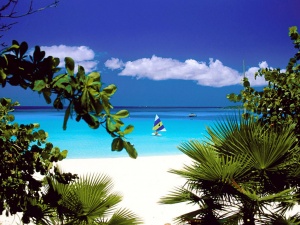This post may contain affiliate links. We may earn money or products from the highlighted keywords or companies or banners mentioned in this post.
January 20, 2015 By: David Eisen
 South Korea is making a big push to induce further development in the country with the overall aim to attract more tourism. The South Korean government said it plans to create a business environment to coax more than 25 trillion won (US$23.2 billion) in investment, particularly by local companies, to build up the country's tourism industry and corporate competitiveness.
South Korea is making a big push to induce further development in the country with the overall aim to attract more tourism. The South Korean government said it plans to create a business environment to coax more than 25 trillion won (US$23.2 billion) in investment, particularly by local companies, to build up the country's tourism industry and corporate competitiveness.
The plan, which was reportedly formulated jointly by the Ministry of Strategy and Finance, the Ministry of Land, Infrastructure and Transport, the Ministry of Culture, Sports and Tourism and other government agencies, calls for the spending of 16.8 trillion won already earmarked for four mega projects, while attracting 8.5 trillion won in new investment to build two new integrated resorts with casinos and tourist hotels.
One of the four mega projects would develop the land in the U.S. Army's Yongsan garrison in central Seoul. The project involves 5 trillion won worth of investment on the site that will be vacated by the U.S. military. “The goal is to get development authorization by April so investment can be made in the second half of this year for the land currently occupied by the United Nations Command,” one official said. Most military facilities in Yongsan are to be consolidated in Pyeongtaek, Gyeonggi Province, by 2016.
The other projects would develop land once used as the headquarters of Korea Electric Power Corporation, build auxiliary facilities for cogeneration plants in new towns and expand OLED display assembly lines.
According to Airang, to boost the country's tourism industry, the government will build two resorts with multiple hotels, conference halls, dining, shopping malls, leisure and sports facilities, medical facilities and casinos, which, reportedly, only be open to foreign tourists. The government says it will also aim to attract funds to expand the number of hotels nationwide to deal with increasing foreign demand.
“Limits imposed on the building of new resorts with casinos will be lifted so they can be built even inside free economic zones by both local and foreign investors,” said Park Min-gwon, deputy minister for the Tourism Ministry.
The government also plans to authorize the opening of four new duty-free shops, three in Seoul and one on Jeju Island.
“We hope that this plan will help lay the groundwork for the development of new industries and improve the corporate investment climate,” Deputy Finance Minister Jeong Eun-bo said.
New investment and development within South Korea is already underway. InterContinental Hotels Group recently signed a management agreement with SiLee Ltd to develop the 268-room Holiday Inn Busan Seomyun, in South Korea’s second largest city of Busan.
Karin Sheppard, COO, Australasia, Japan & Korea and AMEA franchising for IHG, said: “There is thriving tourism across South Korea's major cities and as its second largest city Busan is also one of the fastest growing destinations in the country.”
Said Trevor Lee, CEO, SiLee Ltd: “We have every confidence the brand’s commitment to quality and its established reputation will make Holiday Inn Busan Seomyun the hotel of choice for the growing number of business and leisure travelers to the city.”
IHG currently operates eight hotels and resorts in South Korea across two brands: InterContinental and Holiday Inn.
Foreign investment in South Korea does appear on the upswing, as evidenced by China's Alibaba Group's talks with the South Korean city of Incheon for a 1 trillion won—about US$923 million—joint investment on a new business complex, which could include a major shopping mall as well as a hotel and a logistics center. Alibaba and Incheon would contribute equal funding for the complex, according to a report from the Dong-A Ilbo daily.
Source: Reuters, eTurbo News, Travel Daily News, Korea Herald, Airang
What do you think of this $type?











